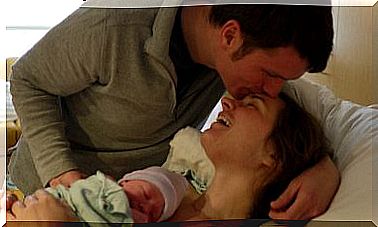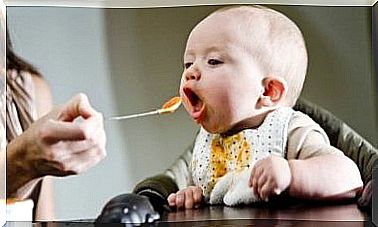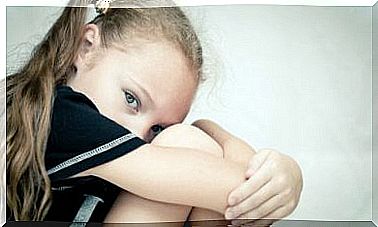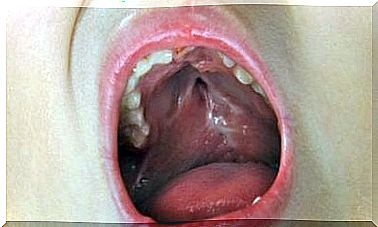Treatment Of Mononucleosis In Children

Mononucleosis in children, as in adults, is a contagious disease commonly referred to as “kissing disease” or “mono”.
Despite its sweet-sounding name, the symptoms of mono are far from cute. This infection is caused by the Epstein-Barr (EBV) virus.
Mononucleosis is most common in people between the ages of 15 and 25. But young children can also get mono because they are constantly exposed to kisses.
No one should be allowed to kiss your child on the mouth. Even as parents, we must refrain from kissing our children on the mouth because our mouth is a breeding ground for viruses and bacteria.
Mononucleosis and other diseases are easily spread by kissing on the lips.
Causes of mononucleosis in children
Mononucleosis is a disease that does not spread as easily as a common cold. Nevertheless, the virus affects the lymph nodes, throat, salivary glands, liver and spleen.
Mono is nothing to laugh about, so it’s good to know how it spreads. That way, you can help protect your children from this unpleasant disease.
These are the main ways in which mononucleosis can spread from person to person:
- The best way to spread mononucleosis is through saliva. For this reason, you should not allow anyone to kiss your children on the mouth. In addition, your children should not share silverware with others. The same goes for any toy they put in their mouth, and of course, oral hygiene items like toothbrushes.
- Sharing a pillow with someone who is infected is likely to lead to infection.
- Being exposed to coughing or sneezing by an infected person can also spread the virus.
Most important symptoms
Being able to recognize the symptoms of mononucleosis will help you respond properly if your child is infected. Below are the main symptoms:
- Very high fever.
- Sore, swollen neck.
- Swelling and pain in the neck glands.
- Muscle pain and fatigue.
- Cough and runny nose.
- Swelling of the eyelids.
- Increasing the size of the spleen (this can only be determined by a doctor).
- Headache, loss of appetite and general discomfort.

How to treat mononucleosis in children
There is no cure for mononucleosis. Antibiotics are not effective because they are a disease produced by a virus.
This virus takes a long time to show symptoms, and usually disappears about 4 weeks after the first symptoms appear.
It is best to try to relieve the pain and discomfort caused by the symptoms to improve the mood of the infected child.
We recommend the following:
- Keep your baby hydrated to always reduce neck pain.
- Let your child gargle salt water. Make sure the child maintains good oral hygiene and help the child if necessary.
- If your child’s doctor recommends ibuprofen, make sure your child is taking it on a regular basis. Give your child the exact dose recommended by your doctor.
- Your child should rest and relax as much as possible to help the child’s body fight the infection.
- Try to lower your baby’s temperature if there is a fever.
- You should avoid letting your child engage in excessive physical activity. This is especially important if your baby’s spleen is swollen to prevent breakage.
- The swelling your child experiences makes it difficult to swallow solids, as well as hot liquids and foods. Instead, give your child soft, cold things like dairy products, lukewarm puree, juice, yogurt, etc.
- Keep your child away from places with smoke that can irritate the throat even more.
- Disinfect often. Pacifiers, toys, sippy cups and any other object that your child puts in his mouth must be disinfected. Otherwise, the virus can survive for several hours on these objects and spread the infection to others.

How long does mononucleosis last?
The duration of this disease will depend on the ability of each organism to defend itself against the virus.
The first thing you need to understand is that a person with mono can walk up to 7 weeks after the infection without showing symptoms. In other words, the incubation period is very long.
Once the first symptoms appear in a child, you can estimate that mononucleosis will last 2-4 several weeks, although all cases are different.
What do I need to know more
In very few cases, mononucleosis can cause other complications, so you should be on the lookout for the following symptoms:
- Acute pain in the upper left side of the abdomen.
- Confusion or dizziness.
- Blurry vision.
- Fainting.
If your child shows any of these symptoms, seek medical attention immediately.
Finally, it is important to know that a person infected with this virus gets it in his organism for the rest of his life.
But just calm down. This does not mean that the symptoms last forever. The virus will reside in your baby’s body but will no longer cause symptoms.
As for the spread of the disease, your child will not be contagious for life. However, a person who has had mononucleosis should be careful for a whole year after being infected so as not to spread the virus to others.









